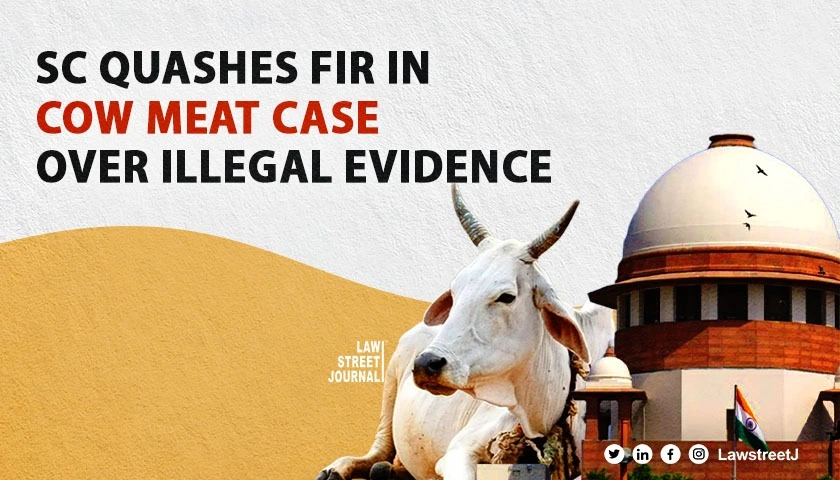NEW DELHI: The Supreme Court has dismissed a petition filed against the Karnataka High Court's order, that quashed an FIR against a Muslim woman and others in a case of illegal storage of huge quantity of cow meant in a godown.
A bench of Justices Abhay S Oka and Ujjal Bhuyan noted the sample collected here by the Assistant Director of the Veterinary Department was completely illegal as the power of the officer under the law was very limited.
The court held there was no error in the view taken by the High Court.
The court upheld the High Court's order which quashed the FIR lodged against Asifa Sultana and others.
In the case, the bench said the crux of the matter was that the sample of the meat was admittedly collected by Dr Omkar Patil, Assistant Director of the Veterinary Department who had no authority in law to do the same.
Further, it noted he did not collect the sample after notice to the first to third respondents.
"Thus, the act of collection of sample by the Assistant Director was completely illegal. It is this sample which was sent for chemical analysis. Thus, the entire case of the prosecution is based on unauthorisedly and illegally collected sample of the meat.Therefore, the High Court was right when it interfered by quashing the First Information Report," the bench said.
The court, however, noted the sample was collected not by a police officer but by the Assistant Director of the Veterinary Department.
"Assuming that he was an authorized person, his powers were very limited under Section 10 of the of the Karnataka Prevention of Cow Slaughter and Cattle Preservation Act, 1964," the bench said.
The court also noted the police also entered the premises but did not collect any sample for sending it for analysis.
Appellant Joshine Antony, while acting as honorary animal welfare officer, complained to Patil about illegal storage of a large quantity of meat of cow in a godown.
He claimed the High Court interjected in the matter before the investigation could proceed, though this was a case where huge quantity of meat of cow was found in the custody of the first to third respondents.
He submitted that the sample collected from the cold storage was sent for DNA test, which revealed that the meat, in fact, was of cow.
The counsel said Patil was duly authorised officer under Section 10 and he had authority to enter any premises and to inspect the said premises as he had a reason to believe that the offence under the 1964 Act has been committed.
He submitted that the High Court has virtually conducted a mini trial.
The top court, however, did not agree to the submission and dismissed the petition.
Referring to Section 10 of the 1964 Act, the bench said, "The power of the officer was confined to enter and inspect. Under the 1964 Act, he had no power to seize any sample of meat. What is interesting to note is that, on the same day, there was one more panchnama drawn in presence of an Assistant Sub-Inspector. The said panchnama records that the sample was already collected and has been sent for testing to the expert. It also records that the meat was stored in a cold storage, which was not functioning. Therefore, the seizure of three rooms and meat packets was made. The police officer did not collect any sample for sending it for analysis."















